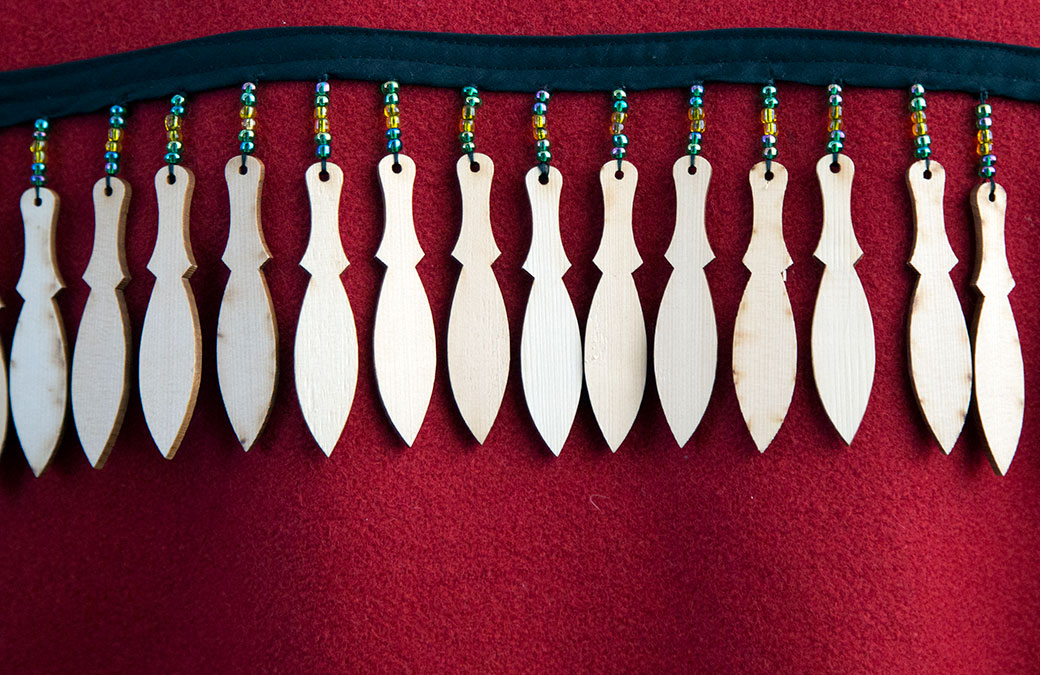The Indigenous Digital Accelerator continues to deliver a collection of professional development workshops in the tech and digital creative sectors.
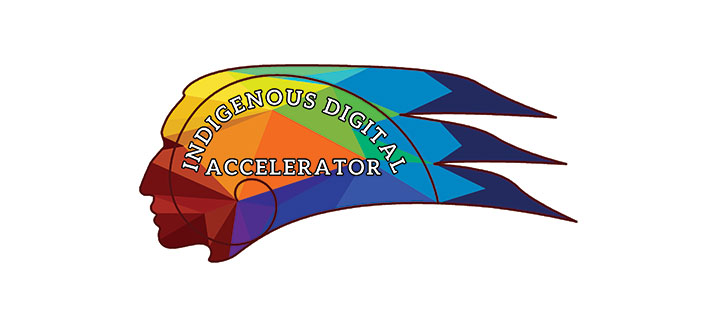
The Indigenous Digital Accelerator's mandate is to empower Indigenous entrepreneurs by assisting them in scaling up their early-stage Indigenous companies with high growth, commercialization and innovation potential within a framework emphasizing community development and low environmental impact.
What we offer
To be successful, entrepreneurs need more than a business plan, financial support and a website.
Our experienced facilitators provide online training opportunities in workshop format to help your business develop its digital capacity.
Business classes focus on financial management, business management, fundraising support, website advice and support.
We also provide online management training in introductory film crew roles and above-the-line film producing.
IDA Workshops
Check out our series of helpful workshops designed to help you grow your business.
Eligibility requirements
- Resident of B.C.
- Majority Indigenous (First Nations, Métis, or Inuit) owned and operated
- Established Business of 1 year
- For-profit business only
Pre-application documents
Read over these important documents before submitting your Indigenous Digital Accelerator application.
Businesses we support
Designed to support Indigenous entrepreneurs and companies owned by Indigenous people, the IDA aims to address significant gaps in the participation of Indigenous peoples in the high tech, digital-creative and cultural sectors.
For-Profit Businesses that include companies involved in digital and creative technology, media production and distribution, language revitalization, virtual and augmented reality, as well as more traditional businesses that need assistance with digitization and online platform development. Businesses will have existing customers and sales, community support and be poised for growth.
Advisory committee
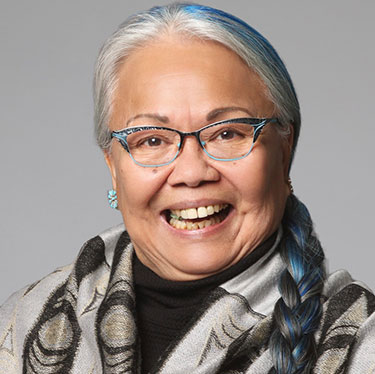 Dorothy Cucw-la7 Christian, PhD is of the Secwepemc and Syilx Nations from the interior plateau regions of B.C. Her home community of Splatsin, is one of 17 communities that comprise the Secwepemc Nation.
Dorothy Cucw-la7 Christian, PhD is of the Secwepemc and Syilx Nations from the interior plateau regions of B.C. Her home community of Splatsin, is one of 17 communities that comprise the Secwepemc Nation.
Christian is the eldest of 10, has one daughter and over 70 nieces, nephews, great nieces, and nephews and at least two great, great nieces. She is called to her home community and to her Nation to be a part of Nation or community engagements.
Dorothy is currently in the Department of Graduate Studies at SFU as the Associate Director of Indigenous Policy & Pedagogy at Simon Fraser University. Her academic research consistently centralized Indigenous knowledge long before those terms became the latest buzzwords in the academy, including Indigenous and Settler relations.
One of the responsibilities she upholds is sitting on the SFU Advisory for Equity, Diversity, and Inclusion as Special Advisor Auntie/Elder to the Vice-President, People, Equity, and Inclusion (VPPEI) and President’s offices.
Dorothy continues to be involved in the Indigenous cultural industries. She is a Board member of the National Indigenous Screen Office organization and on the Advisory for the Indigenous Digital Accelerator Program at Capilano University. She also works with the Women in the Director’s Chair organization on their equity, diversity and inclusion training.
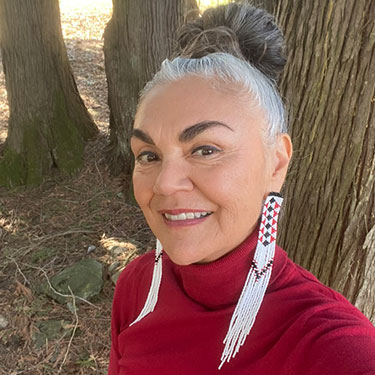 Cynthia is a member of the Tzeachten Band and Stó:lō Nation in Chilliwack, B.C. She is an Ecosystem Catalyst in Indigenous Populations and the founder of Sp'oq'es Entrepreneurs.
Cynthia is a member of the Tzeachten Band and Stó:lō Nation in Chilliwack, B.C. She is an Ecosystem Catalyst in Indigenous Populations and the founder of Sp'oq'es Entrepreneurs.
Through her business and work as a facilitator, mentor, and business coach, she empowers Indigenous entrepreneurs to realize their potential to create sustainable economic and social value in the world.
An entrepreneur since 1987, Cynthia holds an MBA in Indigenous Business Leadership from Simon Fraser University and takes great pride in providing service leadership and inspiring new entrepreneurs to move forward and out of their comfort zones.
Debra previously held the position of Senior Manager of the Indigenous Business Programs at SFU. She has vast experience in business and has owned several retail businesses as well as a consulting practice.
Her background in leadership stems from her extensive work with First Nation governments and organizations such as the World Council of Indigenous Peoples. She is fiercely committed to maximizing opportunity, building capacity and economic self-sufficiency for First Nation communities.
Debra is a graduate of the EMBA IBL program. She also holds a certificate in Applied Project Management. Debra is from the Cree Nation in Alberta.
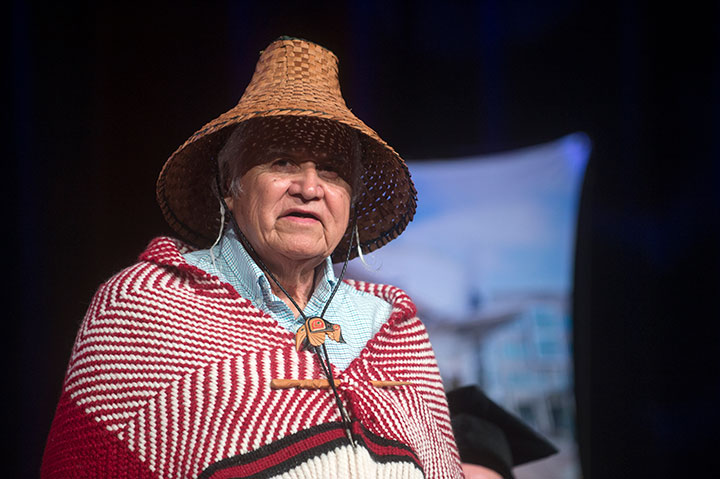
We had the privilege of having Slá’hólt, Hereditary Chief of the Tsleil-Waututh Nation and Capilano University in-residence Elder Ernest (Ernie) George advise the IDA program in its early development. We remember him and the contributions that he made to all Indigenous people.
IDA clients
Check out IDA's previous clients:
- Micheal Auger and Petie Chalifoux-Tohkapi Cinema Ltd. — Disappearing Moon
- Chastity Davis-Alphonse — Deyen: An Invitiation to Transform
- June Anthony-Reeves — Up the Hill at Loakin
- Jennifer Podemski — The Shine Network Institute
- Tania Koenig-Gauchier and Shirley McLean — Wapanatahk
- Alissa Assu — Bear Essential Oils
- Kaitlyn Redcrow & Cameron Watts — Raven House Films
- Jaymie Campbell — White Otter Design Co.
- Destiny Hoostie & Kelsey Coutts — Bangin' Bannock
- Leigh Joseph — Skwálwen Botanicals
- Valerie Lamirande & Alissa Assu — RavenSong Soap & Candle
- Rosie Johnnie-Mills — House of Copper Films
- Vina Brown — Copper Canoe Woman
- Naomi Bourque — Naomi Bourque Jewelry
- Rowena Veylan — The New School of Fundraising
- Jordan Hocking — Sriracha Revolver Hot Sauce
- Michael Hill — Michael Hill Designs
- Buddy Joseph & Janice George — Weaving House
- Sade Auger — Hawk Lace
- Joleen Mitton — Supernaturals Modelling
- Joleen Mitton — Vancouver Indigenous Fashion Week
- Dustin McGladrey — The House of Copper
- Debra Sparrow — Salish Blanket Company
Our partners

Through the TD Ready Commitment, the TD Bank Group is working together with community organizations across the country to build a more inclusive tomorrow.
Focused on improving financial and digital literacy, TD support for the IDA will help enrolled Indigenous entrepreneurs and leaders build confidence, adapt to change and drive growth for their business today and into the future.
Project sponsors



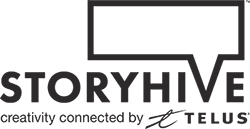





Frequently asked questions
A business accelerator is a program that helps developing companies build strong sustainable businesses by providing mentorship, funding and other support.
Accelerators are for companies that are already established, but need mentorship and support to build momentum and get to the next level.
The Indigenous Digital Accelerator was designed for Indigenous companies in the high tech, digital-creative and cultural sectors including film, television, games and digital media; however, it's also appropriate for more traditional companies that want to add a digital component such as a website or e-commerce platform to their business model.
The Indigenous Digital Accelerator will connect Indigenous entrepreneurs to CapU students who are interested in gaining work experience during practicums, internships, co-op work terms and summer employment. Students will be available to help entrepreneurs with research and other tasks.
Capilano University is committed to Truth and Reconciliation, and helping Indigenous entrepreneurs and communities grow and thrive.
Ready to take your business to the next level?
Find out if the Indigenous Digital Accelerator is right for you. Our team will walk you through how the program works, how to apply and what you will get out of the experience.
Doreen Manuel – BA, MFA - Director Bosa Centre & Inclusive Community Programs
Call: 604 986 1911 ext. 3700
Email: ida@capilanou.ca
